Chip Bergh
President and CEO, Levi Strauss & Company
republished from LinkedIn 2 Feb 2015
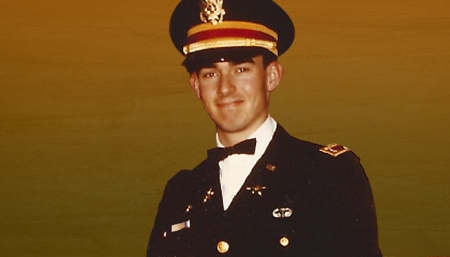
I read this article in Linkedin and couldn’t help reminisce the good old days in the Army. Yes, the same principles – from barracks to boardroom, from Manila to Mamasapano – apply. In the light of that tragic misadventure in Mamasapano, I’d like to share this article with you. Am pretty sure you’ll find this not just an entertaining read, but a very helpful one in your day-to-day activities as well. For those among us who wear the combat boots still, these are good reminders of values worth imbibing. Happy reading!!!
As the CEO of Levi Strauss & Co. and a 28-year veteran of Procter & Gamble, I tend to be known as a “brand” guy, a businessman, someone who launches brands and strives to build talent and strong global businesses. But my “formative” years were spent as a U.S. Army Officer fresh out of college in a combat unit in Germany during the peak of the Cold War.
In many ways, it was my military experience that shaped who I am and how I think about leadership. Even though those days in Germany were 35 years ago, the lessons have stayed with me all of these years. In fact, the military may have given me the best advice and taught me the most valuable lessons I’ve learned in my career.
1. Always eat last. One of the first things I learned as an officer was that officers always ate last. The principle is simple: to be a good leader, you take care of your people first. Officers are the last to sleep, the first to wake, especially in the field. And though “servant leadership” may sound like an oxymoron, taking care of your “soldiers” means they will take care of you.
2. Never ask a soldier to do something you wouldn’t do yourself. A corollary to the “always eat last” principle, real leaders will never “order” or even ask someone to do something they wouldn’t do themselves. In most cases, the best leaders never ask their soldiers to do anything they haven’t already done before.

3. Take the high ground. A key principle in combat is that the “high ground” is always the most important piece of real estate – and many famous battles were fought over an especially important hilltop. In business we must also always fight for the “high ground.” Whether that is owning the category benefit (e.g. Folgers coffee owning the benefit of “waking up” or for Levi’s, the idea that you wear other jeans but you “Live in Levi’s”), or being on the moral high ground. One of the great joys of being at Levi Strauss & Co. is knowing that we have always stood for what is right, and have led for progress. Leaders determine the “high ground” they want to own, and then fight for it.
4. Casual pace, casual results. My first commander taught me to always walk with a sense of urgency. Because walking with a sense of urgency creates a sense of urgency. One of the best lessons I learned as a Brand Manager was to always create a sense of urgency (very different than a sense of crisis!) with my advertising agency. Have deadlines. Don’t dawdle. Create urgency, and you will get better work.
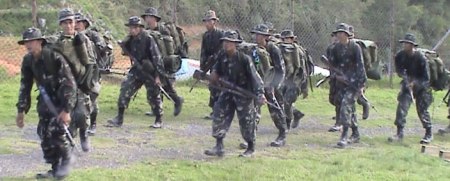
5. It’s better to make the wrong decision than to make no decision at all.Indecision can paralyze an organization. Strong leaders are not afraid to make decisive decisions. They take a stand. But, they also know when to make their decisions – they don’t do it based on emotion, in haste, or without enough data to be well-informed. Conversely, they know there is no such thing as “perfect data” and that “more data” can simply lead to paralysis by analysis. Leaders face times when they have to make tough, or unpopular decisions. Strong leaders remain visible during these challenging times.
6. When in doubt, attack. “An army that isn’t moving forward is dead,” said General Patton. In combat, like sports or business, momentum is everything, and the only way you create momentum is by moving forward, by attacking. If your business doesn’t have “momentum,” ask yourself how can you “attack” and create momentum for your brand?
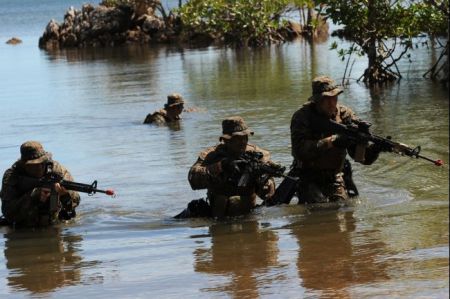
7. Never “dig in” and defend. Rather, see Rule 6. There is a military saying that when you “dig in,” you are only “digging your own grave.” It’s harder for the enemy to hit a moving target than a stationary one. When faced with a competitive threat, think attack. Same is true in business. How can you use a competitive threat to grow your business and build share? How can you turn a competitive attack to your advantage with a well-planned counter attack?
8. Walk the track park. Want to find a military unit that is disciplined and prepared for combat? Walk the track park, where they keep their military vehicles. Disciplined units have vehicles parked in a perfect line, sparkling clean, fueled and ready to go to war at a moment’s notice. If they are disciplined here, you can be sure they are combat ready. Want to find a disciplined business unit? “Walk the track park.” Look at unexpected indicators and even the seemingly small things: How do they use research results? How secure is their office? Do they treat supplies as “money” and use them sparingly? Find discipline in unexpected places, and you’ll find the units who likely deliver exceptional results all the time.
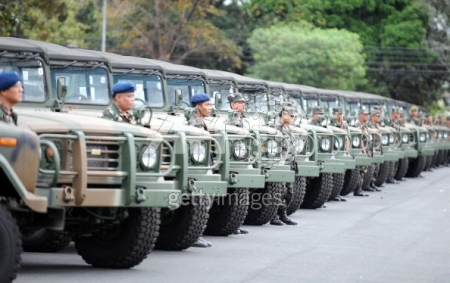
9. Always have a “Plan B.” When lives are at stake, you must have a well-thought-out military plan. But, having your “combat plan” is not enough. Every good leader always has at least one fallback plan (and often more than one), because things never go as planned. There is no time to create a Plan B in the heat of the battle. It’s not enough to plan for “best case,” we need to plan for things not going as planned, and know ahead of time how we will respond.
10. Leaders lead from the front. In combat, the action takes place “in the front.” Strong leaders get there despite the fact that it can be a dangerous place. Same in business. Strong leaders get to where the day-to-day “combat” is being fought – in the markets, with customers, with consumers – and they listen to their “frontline commanders.”
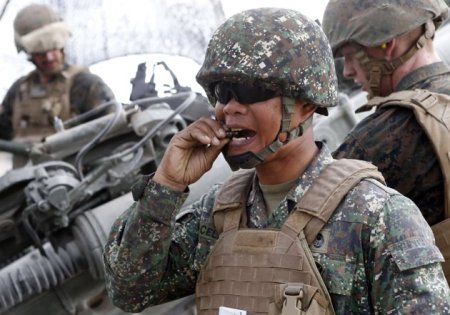
I think back to those military days and am always struck by the longevity and ubiquity of those lessons. It clearly shaped me as a leader and these lessons have stuck with me for an entire career. I’m curious to learn if others have gotten some of their best professional advice from unique places – whether that’s your home life, a different industry, or perhaps even in your youth.
(Pics courtesy of dawn.com, 8idlocalnews.com, 9idblogspot, wn.com, marcelinorapaylajr.wordpress.com)
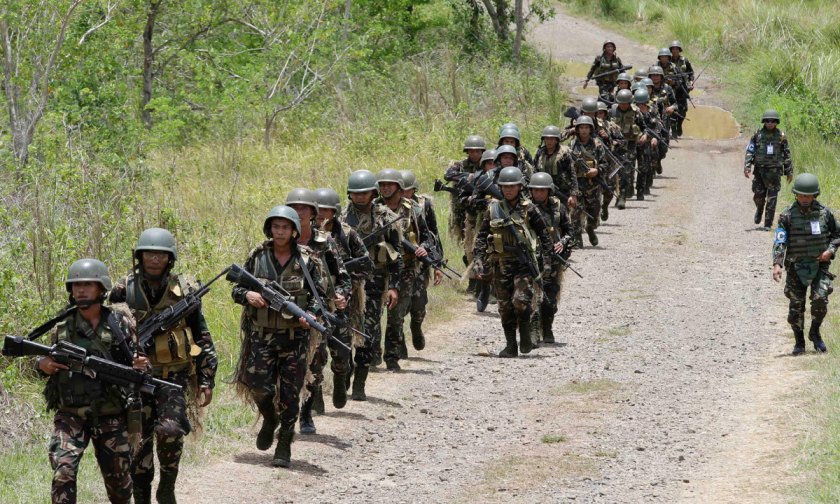





Hi, Sir Charly, can I have permission to post this in my facebook with proper acknowledgement, as I am going to share this to my relatives and friends.
LikeLike
Of course, Mon. Do spread it around. This article is very useful, be it in the military organization or elsewhere, even the family. It is particularly relevant now, with what happened in Mamasapano. These are lessons that need to be constantly reviewed, lest we lose sight of the true priorities in life.
LikeLike
Damn! Seeing these photos makes me miss my airsoft days.
LikeLike